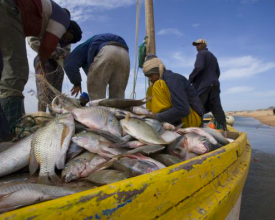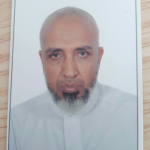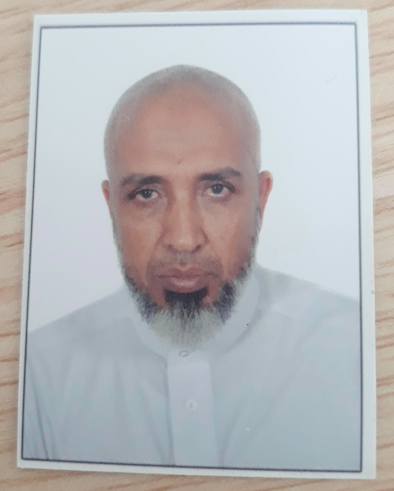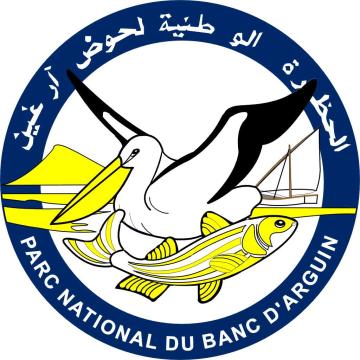
Participatory maritime surveillance within the Banc d'Arguin National Park
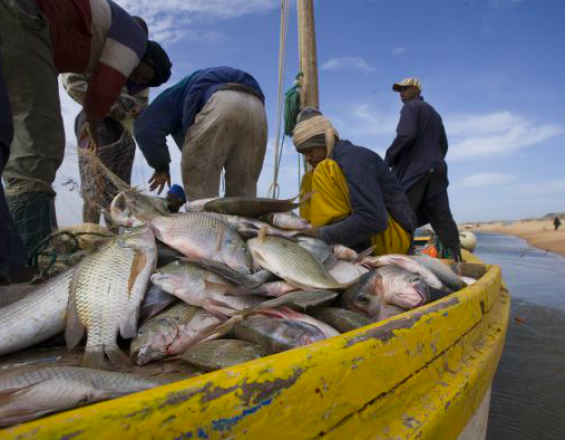
With an area of 12,000 sq.km. – of which 6,300 are marine areas and 5,700 are on the continent – the Banc d'Arguin National Park (PNBA) is one of the largest national parks in Africa. It is a breeding ground for the curlew, for the maturation of the yellow mullet, and is home to many migratory birds and fish species. The park is also home to extensive intertidal and subtidal seagrass meadows. Another exceptional feature of the PNBA is the presence of the Imraguen, a population of desert fishermen. They have ancestral and exclusive rights over fishing resources as part of their traditional practices using Latin sailing boats called ‘lanches’. The importance of the PNBA in terms of biodiversity and cultural heritage requires guaranteeing its socio-ecological integrity. Aware of this situation, the PNBA managers and the Delegation for Fisheries Surveillance and Control at Sea (DSPCM) – now the Mauritanian Coast Guard (GCM) – set up a participatory maritime surveillance system in 1999.
Context
Challenges addressed
Several challenges are to be noted in the context of the participatory maritime surveillance set up within the PNBA:
- The intensification of artisanal motorized fishing in Mauritania over the years (pressure external to the park).
- The increase in illegal fishing practices within the park
- The development of infrastructures for the processing and preservation of fishery products. Despite contributing to the socioeconomic development of the population, this also increases the fishing effort and hence the pressure over fishery resources.
- Limitations in surveillance capacity due to outdated equipment and insufficient autonomy of vessels.
- The economic cost of the system, particularly over the vast area of marine and coastal territory to be monitored.
Location
Process
Summary of the process
The three building blocks complement each other. Blocks 1 and 3, respectively "Shared governance" and "Awareness raising and knowledge exchange activities", ensure the intangible conditions necessary for the success of this solution. Block 2 "Supporting economic activities and alternative incomes" deals with the material conditions. Ideally, these three elements should be developed in parallel. However, they can also be implemented one after the other and independently from each other.
Building Blocks
Shared governance
The participatory maritime surveillance system of the PNBA is the result of a tripartite partnership, which integrates the resident Imraguen population, alongside the park managers and the coast guards (GCM). This system aims to control the entry of boats from outside the PNBA, particularly for motorized pirogues, which have been prohibited within the park since its creation in 1976.The respect of the fishing seasons calendar is today considered a successful model in the West African sub-region. The experience of the PNBA has benefited the Regional Network of Marine Protected Areas in West Africa (RAMPAO), notably through technical support missions and exchange visits. The functioning of the PNBA's participatory surveillance mechanism has as a central feature the representativeness of three entities on board each surveillance vessel: a PNBA agent, a GCM agent, and a representative of the Imraguen population. It has so far contributed to the reduction of illegal exploitation of resources, through the application of management rules agreed upon jointly with the resident population
Enabling factors
All sectors are represented at committee meetings: fishermen, fish merchants, women processors, and boat carpenters. In addition, on board the surveillance boats patrolling the waters of the park, a representative of each of the three parties of the in the maritime surveillance is present: a PNBA officer, a coast guard officer, and a representative of the local population (designated by the population itself).
Lesson learned
The presence of these three representatives on board each surveillance vessel has proven to be facilitating interventions, reducing the potential risks of corruption by fishermen who are boarded in the event of an infraction.
Supporting related economic activities and alternative incomes
In order to enhance the participatory surveillance system, but also to preserve ancestral local know-how and the maritime heritage, the PNBA has set up a community shipyard of R'Gueiba. This shipyard is devoted to the renovation and construction of Imraguen boats. It is managed by the local carpenters' cooperative “El Ittihad”, which brings together 8 Imraguen trained by the PNBA with the help of Breton French naval carpenters. Women are in charge of the pruning and maintenance of the sails. In addition, ecotourism activities are carried out – mainly by women – with the aim of offering alternative income-generating activities, and hence reduce anthropic pressures on the fishing resources.
Enabling factors
The ongoing alternative income generating activities is facilitated by the shared governance system established within the PNBA, which has laid the foundations for regular meetings between the park managers and the population. During these meetings, the resources and needs of the Imraguen can be mapped.
Lesson learned
While the development of ecotourism has the potential to promote employment and generate alternative income sources within the Imraguen community, and hence help reduce the pressure on fishing resources, more research is necessary to assess the current impacts of the activity.
Awareness raising and knowledge exchange activities
Awareness raising activities and information campaigns around the legal regulations in place, and around the management measures agreed upon by mutual agreement, are regularly carried out among the population. These enhance the acceptance of the maritime surveillance activities by the population, as well as a good understanding of the different conservation measures taken and their evolving impacts on the biodiversity of the PNBA. The activities include raising awareness about the fisheries regulations in force and their evolution with respect to biological halt periods, raising environmental awareness in general, but also sharing the results of fisheries monitoring (fishing effort, catches, infractions recorded, etc.).
Enabling factors
Awareness raising and knowledge exchange activities are taking place in an enabling communication environment, as a result of the shared governance mechanism and the ongoing exchange and collaboration between the Imraguen and the park administration.
Lesson learned
A regular exchange of ecosystem knowledge and fish catch information between scientists and fishermen has shown to enhance the overall functioning of the participatory maritime surveillance system.
Impacts
Since its establishment in 1999, the participatory maritime surveillance and monitoring of the PNBA results in the boarding of a significant number of offending vessels each year (170 motorized pirogues and 10 lanches in 2018), as well as in the seizure of different types of prohibited fishing nets. The monitoring of the fishing effort and catches of all the sailboats has been conducted since the 2000s. These data are being processed every year by the PNBA agents in collaboration with the Mauritanian Institute of Oceanographic Research and Fisheries (IMROP), and shared annually with the population of each village within the PNBA. Although the participatory maritime surveillance system has contributed to reducing the illegal exploitation of resources and to the application of management rules, the impacts on the fish stocks are quite unknown. A stock assessment is needed to evaluate the precise impacts of the conservation and fisheries management measures over the stocks of the five groups of fish being harvested within the park.
Beneficiaries
- The beneficiaries of this solution are the Imraguen community, the managers of the PNBA, as well as the scientific community involved in the conservation and sustainable management of fisheries resources along the Mauritanian coastline.
Sustainable Development Goals
Story
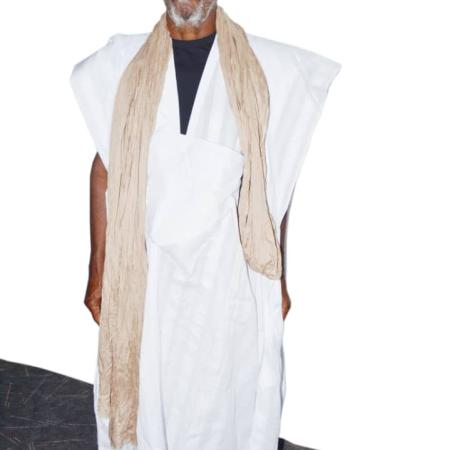
Embarek Ould Bouhwar, born in 1950 in the park area, is the chief of the village of Agadir. He has been aware of the importance of preserving the park’s ecosystems since the 1990s, when the first surveillance mission was initiated in 1992. At the time, he used his own means (car and boats), and involved the agents of the park, who did not yet have surveillance boats. Embarek Ould Bouhwar continues today to support the PNBA's efforts for conservation and surveillance. As a resource user, he ensures compliance with the regulations in force, including co-management rules agreed upon with the local population. Based on his traditional and empirical knowledge about the PNBA's natural heritage, Embarek Ould Bouhwar also carries out activities to raise awareness among the Imraguen population about the important ecological and socio-economic role of the PNBA.

